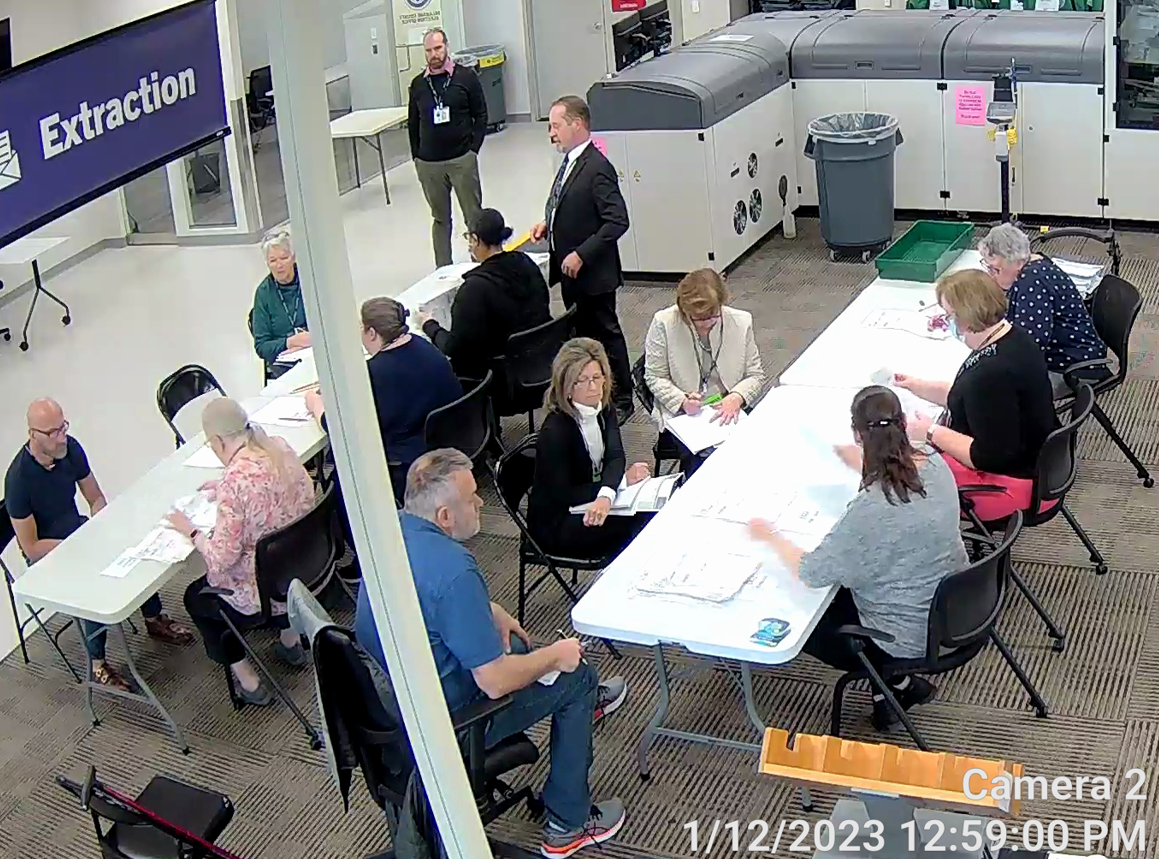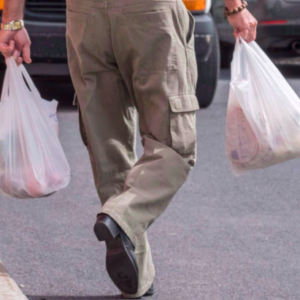Delaware County Bureau of Elections Completes Successful Election Recount

From a press release
The Delaware County Bureau of Elections recently completed a successful recount of votes cast during the Nov. 8, 2022 General Election, verifying the official election results reported shortly after Election Day.
The recount was undertaken as part of an agreement with a small group of residents who had filed a petition in the Delaware County Court of Common Pleas, seeking recounts in multiple precincts to address their concerns that the vote tallies in Delaware County were inaccurate.
During a hearing held on Nov. 22, before Delaware County Court of Common Pleas Judge Barry Dozor, the petitioners agreed to withdraw their petition—in exchange for which the Board of Elections agreed to conduct a full recount of a single precinct of the petitioners’ choosing; Haverford 2-3 was their precinct of choice.
Conducted at the Bureau of Elections’ offices at the Union Power Plant building in Chester on Jan. 12, 2023, the recount involved seven observers representing the petitioners, eight County workers, and a party leader, and took a little over four hours to complete.
The recount was first conducted using certified tabulation equipment and then separately, was conducted by hand, allowing the observers to examine every Election Day ballot, absentee ballot, mail-in ballot, and provisional ballot from a distance of two feet.
The recount provided a 100% verification of the original vote totals for each candidate for the four races on the Haverford 2-3 ballot—including candidates for U.S. Senate, Governor / Lieutenant Governor, the U.S. House (the 5th District), and State House (the 166th District)—inclusive of every Election Day, mail-in and provisional ballot.
“Everything was verified 100 percent,” said Delaware County Director of Elections James Allen. “Every single vote, every single contest, every single over vote, every single under vote, every single write in.”
The successful recount was the latest vindication for the Delaware County Bureau of Elections, which like many election offices across the country in the wake of the 2020 General Election, has faced—and won—numerous lawsuits regarding election results. In all, The County of Delaware has prevailed in over a dozen lawsuits that have been filed in the Delaware County court system since 2020, with cases either dismissed or ruled in the County’s favor.
“We have now been through six recounts with the current balloting system, two of which included hand recounts,” explained Director Allen. “In all of the recounts, in each and every case, the original results have been confirmed—even a mayoral contest that was decided by three votes.”
In addition, risk-limiting audits of randomly selected precincts—using manual hand counts of mail-in and/or precinct ballots—are performed after each election in Pennsylvania. These audits have successfully verified the results of each election in Delaware County since the audit process was first implemented in 2020.
“These recounts really underscore not only the professional work being done by our Bureau of Elections under Jim Allen, but also the great work being done by our poll workers,” said county Councilwoman Christine Reuther, adding “These recounts and risk-limiting audits really illustrate the accuracy of our processes and demonstrate that that our balloting system is accurate and secure.”
Please follow DVJournal on social media: Twitter@DVJournal or Facebook.com/DelawareValleyJournal



